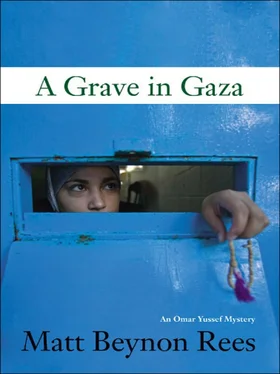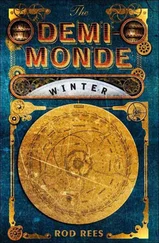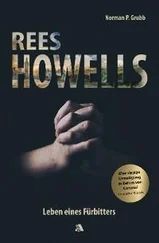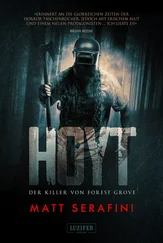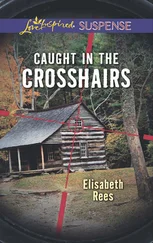Matt Rees - A grave in Gaza
Здесь есть возможность читать онлайн «Matt Rees - A grave in Gaza» весь текст электронной книги совершенно бесплатно (целиком полную версию без сокращений). В некоторых случаях можно слушать аудио, скачать через торрент в формате fb2 и присутствует краткое содержание. Жанр: Криминальный детектив, на английском языке. Описание произведения, (предисловие) а так же отзывы посетителей доступны на портале библиотеки ЛибКат.
- Название:A grave in Gaza
- Автор:
- Жанр:
- Год:неизвестен
- ISBN:нет данных
- Рейтинг книги:5 / 5. Голосов: 1
-
Избранное:Добавить в избранное
- Отзывы:
-
Ваша оценка:
- 100
- 1
- 2
- 3
- 4
- 5
A grave in Gaza: краткое содержание, описание и аннотация
Предлагаем к чтению аннотацию, описание, краткое содержание или предисловие (зависит от того, что написал сам автор книги «A grave in Gaza»). Если вы не нашли необходимую информацию о книге — напишите в комментариях, мы постараемся отыскать её.
A grave in Gaza — читать онлайн бесплатно полную книгу (весь текст) целиком
Ниже представлен текст книги, разбитый по страницам. Система сохранения места последней прочитанной страницы, позволяет с удобством читать онлайн бесплатно книгу «A grave in Gaza», без необходимости каждый раз заново искать на чём Вы остановились. Поставьте закладку, и сможете в любой момент перейти на страницу, на которой закончили чтение.
Интервал:
Закладка:
“There’s no ambulance here, you see?” Khamis Zeydan said. “It already came and took him to Shifa, to the hospital. I’ll take you there to find him.”
Omar Yussef stumbled toward the Jeep, leaning on Khamis Zeydan’s shoulder, wheezing and retching. Sami watched him, blankly. He climbed into the car. He thought of James Cree, squatting before the grave of his great-grandfather in the British War Cemetery, and he loathed the cruel history of Gaza. He smelled the smoke from the wrecked UN car on his clothes and skin. He saw his face in the rearview mirror. The shadows were deep.
Chapter 17
The hot, evening wind rattled the palm fronds in Shifa Hospital’s broad quadrangle as Omar Yussef stepped out of the Jeep. Khamis Zeydan hurried through the main entrance, where the fluorescent tubes were lit early against the heavy, dust-storm twilight. Omar Yussef came through the door and inhaled a deep lungful of air. It was without dust or oil smoke, but still unsatisfying; it bore an undertone of body odor and corrupt bowels cloaked by antiseptic floorwash. He rubbed his eyes, flicked the gritty gum from the tear ducts, and cleaned the lenses of his glasses with his handkerchief.
Khamis Zeydan returned from the front desk, lighting a cigarette.
“Is he in the Intensive Care Unit?” Omar Yussef asked. He replaced his uneven glasses and saw the heaviness in Khamis Zeydan’s expression.
“He’s at the morgue,” his friend said.
Omar Yussef’s knees shook. He stumbled against the wall. His shoulder took his weight on the tender spot where it had been hit by the stone as he struggled to get to Cree’s burning vehicle, and he gasped in pain. He felt feeble, and growing weaker.
“The nurse asked if you would identify the body.”
He searched for the hardness and strength he had felt at the wreckage of the UN car. “Let’s go to the morgue,” he said.
Khamis Zeydan led him into the dusty air and across the grass of the quadrangle, burnt yellow by the sun. The morgue was in the southeastern corner of the square, a single-story, sandstone block with its entrance up a small flight of steps. A nurse directed them to the pathologist’s office. “Abu Fawzi will be with you shortly,” she said.
The office was large, piled with files and painted the same soapy green color as surgical scrubs. Omar Yussef read the labels on the tall, black binders on the bookshelf: Firearm Injury, Explosive, Head Injury, Strangulation/Hanging, Sexual Offense, Poisoning. All the files were thick with cases. He tapped the Explosive binder with his forefinger and let his hand rest against it, thinking of James Cree, whose case would soon be filed within it.
He remembered confessing to Cree about being jailed as a youth and the way the Scotsman had smiled and laid his hand on his shoulder. It seemed almost as though the mention of the word murder had been enough to bring it about. When it comes from my mouth, at least, he thought. “Those kids,” he said. “It’s inhuman for them to stone the wreckage of the car.”
Khamis Zeydan sat in a rickety chair in front of the pathologist’s desk. He stubbed out his cigarette in an ashtray that balanced on a pile of manila folders, measured the stability of his chair by its creaking as he leaned back, and lit another Rothman’s. “Everything that represents authority is an object of hate for them,” he said. “They don’t think about the poor bastard inside the car. To them, it’s a blow at everything that keeps their lives shitty.”
Omar Yussef touched his grimy fingers to his mustache. They smelled of the smoke from Cree’s car. When you’re a victim, there’s no room in your life for other people’s suffering, he thought.
He recalled the shocked face of the boy by the burning car, when he had grabbed him and taken away the stone he was about to throw. He would have liked to slap that face. It’s the people who did this to James for whom I must reserve my anger, not that stupid kid, he told himself. And for the people who still hold Magnus. He felt sorry for what he had said to Khamis Zeydan about wanting to kill them all.
A man in light green scrubs entered through the office’s second door, which was marked Surgery. Behind him, Omar Yussef saw light glimmering off stainless steel freezers. He closed the door and greeted them. “I’m Doctor Maher Najjar, the hospital pathologist. In fact, the only pathologist in the Gaza Strip.”
“You must be a very busy man,” Khamis Zeydan said.
“I have six trainees. It’s an expanding profession,” the pathologist said.
Najjar was broad and bulky under his scrubs. A surgical cap rested on the back of his bald head and his face mask was pulled halfway down his gray beard. Omar Yussef looked for signs on his face that would mark him as the man who saw every corpse in the Gaza Strip, opened them up and queried them, called death by what it was.
“Are you a colleague of the deceased gentleman from the United Nations?” the doctor asked Khamis Zeydan.
“No, I’m accompanying my friend Abu Ramiz. He’s been working with the UN man.”
Najjar turned to Omar Yussef, gravely. “Allah will be merciful upon him, the departed one.” He shook Omar Yussef’s hand and placed his palm over his heart. “Would you like some tea to steady your nerves before we identify the body?”
Omar Yussef shook his head. Najjar took his arm and led him into the bright light beyond the Surgery door. The walls were banked with stainless steel freezers. A red circle on a white background affixed to the first freezer indicated that they had been donated by the Japanese government. Najjar led Omar Yussef to the four mortuary tables at the center of the room. The first table was empty. There was a hole at its center to drain blood to a gutter in the floor tiles. The other three tables were occupied, each by a body covered in a cream plastic sheet. The body closest to Omar Yussef was very tall. He could have told Najjar that this was Cree without lifting the sheet, and he was glad the Scot was intact enough after the explosion that he could still recognize him by his height.
“I’m sorry for the number of bodies. These are unusual cases. I must think hard about them.” Najjar seemed to choose his words carefully. “Usually the bodies that come in here aren’t so complicated: either they are domestic accidents, or car crashes, or some member of the resistance killed by the Israelis. These two in the back require more thought.” He held Omar Yussef’s shoulders and guided him to the side of the table which held the long body.
Omar Yussef nodded. Najjar lifted the corner of the sheet.
Cree’s face was red and black, as though it had been skinned. At the nape of his neck, his hair was scarlet with blood and the rest was burned away. His lips were gone and his teeth were bared and ghastly. Traces of his mustache feathered the remnants of his nose. His puffy face had tightened as it burned. He looked like a slightly damp mummy from an Egyptian museum. Omar Yussef nodded and Najjar replaced the plastic sheet on the body.
“There’s some paperwork, but first I will bring that tea, after all.” The doctor left Omar Yussef with Khamis Zeydan.
Omar Yussef looked at Cree’s body, covered now. He wondered if they would bury him with his great-grandfather in the British War Cemetery. Probably the UN would ship his corpse home. He imagined the cold ground where they might lay him in Edinburgh. He noticed Khamis Zeydan cradling his prosthetic limb in the palm of his good hand. The policeman pulled tight on the black leather glove he wore to disguise the false hand. “Have you ever seen a body look this way?” Omar Yussef asked, gesturing toward Cree’s table.
“I’m sorry to say that I have,” Khamis Zeydan said. “It’s my misfortune that, if you lifted the sheets on the other two tables, I’d probably have seen dead men who looked just like those, as well.”
Читать дальшеИнтервал:
Закладка:
Похожие книги на «A grave in Gaza»
Представляем Вашему вниманию похожие книги на «A grave in Gaza» списком для выбора. Мы отобрали схожую по названию и смыслу литературу в надежде предоставить читателям больше вариантов отыскать новые, интересные, ещё непрочитанные произведения.
Обсуждение, отзывы о книге «A grave in Gaza» и просто собственные мнения читателей. Оставьте ваши комментарии, напишите, что Вы думаете о произведении, его смысле или главных героях. Укажите что конкретно понравилось, а что нет, и почему Вы так считаете.
